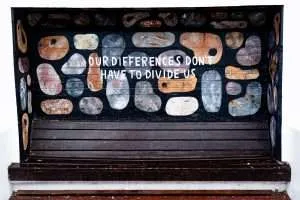Within the realm of sociology, there exists a contentious debate surrounding the recognition of the founding mothers of the discipline, highlighting a potential bias towards sexism and patriarchal hegemony. While sociology’s early development primarily focused on industrialization, modernity, and conservative reactions to the Enlightenment period, it is often criticized for its neglect of the contributions made by women in shaping the field.
Jane Addams (1860-1935), Charlotte Perkins Gilman (1862-1931), Marianne Webber (1870-1954), Anna Julia Cooper (1858-1931), Ida Wells-Barnet (1862-1931), and Beatrice Potter Webb (1858-1943) were among the pioneering feminist sociologists who dedicated their major works to social reforms aimed at improving the lives of women. Their significant contributions revolved around recognizing women’s experiences as equally important to men, advocating for women’s upliftment, emphasizing the purpose of sociological thinking, and urging reforms to address inequality.
Yet, the discipline of sociology often fails to acknowledge these trailblazing women who were instrumental in its early development. For example, Harriet Martineau, whose publication “Illustration of Political Economy” (1832-34) predated the works of Auguste Comte and Herbert Spencer, is often overlooked as a potential founder of sociology. Martineau played a vital role in translating Comte’s positivism into English, a text that is widely studied today. Similarly, Harriet Taylor Mills and Gertrud Simmel, the wives of John Stuart Mill and Georg Simmel respectively, worked alongside their husbands, either independently or collaboratively, in shaping the field of sociology, yet their contributions remain largely unrecognized.
Even Marianne Webber, the wife of Max Weber, published eleven books on sociology in her own right, which unfortunately were never translated into English, while her husband’s biography received wider recognition. Furthermore, activists and social reformers like Beatrice Potter Webb have often been overlooked despite their significant contributions to the discipline.
Critics argue that the institutionalization of sexism within higher education and the influence of male sociological figures perpetuated a male-dominated discipline, sidelining the voices of female sociologists over the course of a century. Additionally, conservative religious backgrounds of influential sociologists such as Talcott Parsons, Comte, and Weber may have influenced their reluctance to embrace the contributions of female sociologists.
However, it is essential to recognize that some feminists, like Dorothy Smith and others, may have struggled to gain widespread recognition due to the perception that their works were not as comprehensive or revolutionary as dominant sociological theories. These feminist sociologists often incorporated ideas from prevailing theories such as functionalism, conflict theory, symbolic interactionism, phenomenology, and ethnomethodology. The various strands of feminism, including liberal feminism, conservative feminism, conventional feminism, modernization feminism, radical feminism, and socialist feminism, emerged by drawing upon both consensus and conflict models of epistemological theorizing.
In the midst of these debates, we must not forget the groundbreaking contributions of Mary Wollstonecraft (1751-1797), who passionately challenged Enlightenment scholars like Thomas Hobbes, John Locke, and Jean-Jacques Rousseau on the subjects of equality, liberty, and justice. As the first female philosopher in the liberal tradition, Wollstonecraft exposed the fallacies in the works of these scholars and argued that societal expectations had conditioned women to be creatures of emotion rather than reason. Building upon Wollstonecraft’s ideas, John Stuart Mill and his wife Harriet Taylor Mill advocated for women’s rights to property ownership, education, suffrage, and professional opportunities.
When contemporary feminists such as Kanowitz, Mitchell, Eisenstein, Kelly, Okin, Alstott, and Cudd entered the scene, they emphasized the importance of laws that grant women equal rights, opposing any legislation that would impose fewer rights upon women than men. These feminists called for the creation of laws that exempt women from certain duties and address the imbalances favoring husbands over wives in marriage. Their primary goal was to promote laws that prohibit all forms of discrimination against women.
In conclusion, the discipline of sociology has been criticized for its conservative and patriarchal foundations, often neglecting the contributions of female sociologists. However, it is crucial to acknowledge that the works of these women, though sometimes overlooked, were significant in shaping sociology. The discipline must strive for equality, ensuring that the valuable insights and perspectives of female sociologists are duly recognized and integrated into mainstream sociology.








